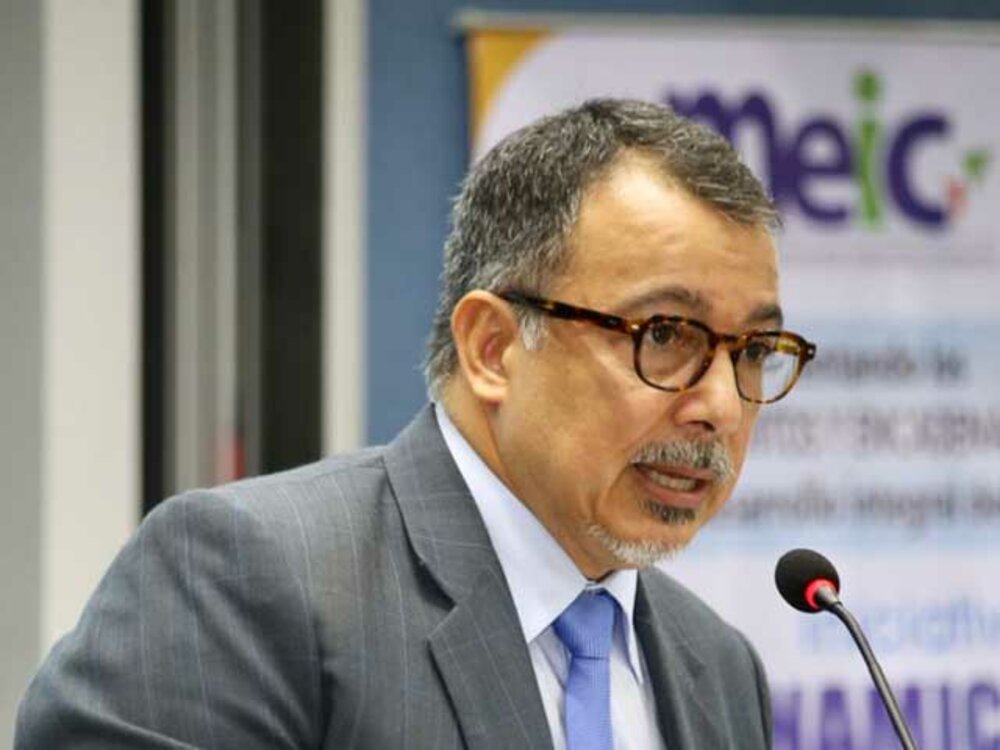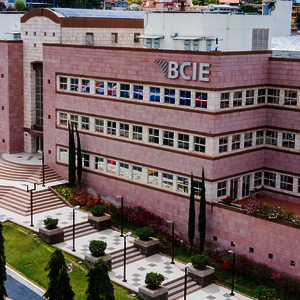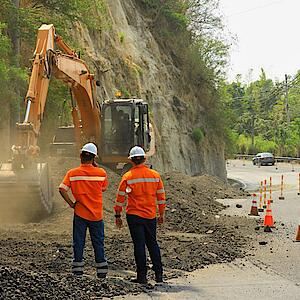CABEI promotes MSMEs as an engine for Social Development through Productive Chains

Support provided to the region exceeds US$2.5 billion in placements, which has created 1.1 million jobs.
SAN JOSE, August 25, 2017 (AFP SERVICES/CABEI). The Central American Bank for Economic Integration (CABEI) promotes the strengthening of the productive chains of Costa Rican Micro, Small and Medium Enterprises (MSMEs), through the Initiative denominated "Development of Business Ideas and Acceleration Central American MSMEs (DINAMICA).”
The initiative has its own resources from CABEI, the German KfW Development Bank and the European Union - through its Latin American Investment Facility - and seeks to promote entrepreneurship, innovation and responsible financing in MSMEs, in the framework of CABEI’s 2015-2019 Institutional Strategy: "Integrating Sustainable Development and Competitiveness".
DINAMICA, through coordination with the Dynamic Business Development Centers of each Central American country, promotes activities to support micro, small and medium enterprises to overcome trade barriers and position themselves into the market in a financially sustainable manner, in which they seize opportunities not only in the supply, but in the demand for products and services.
At the inauguration of Productive Chain Week 2017, which was held on Monday August 21, in San José, Costa Rica, CABEI Director for Costa Rica, Mr. Alberto Cortes Ramos, stated that, "We have detected that MSMEs have serious shortcomings and weaknesses related with such issues as legal incorporation, poor management, certification problems and compliance with formal market standards."
Given the above, Mr. Cortes highlighted the importance of technical support and training for small businesses to be successful and become an engine for regional social development. He added that, "One of the reasons why CABEI is opting to promote productive chains as a method of structuring projects and financing is because analyses indicates that if an MSME is not guaranteed a market and starts increasing production, without taking into account the technical requirements and requisites of potential buyers, or does not have the capacity to plan the production process, it could jeopardize their future financial stability."
For his part, Mr. Cortés explained that commercial linkages are important for MSMEs, since a contract with an established company (large company and high consumption of goods and services) ends up being a guarantee that MSMEs can opt for financial system resources, which enables them to attend market needs and take advantage of local business opportunities. This financial scheme, coupled with integral MSME training in the framework of production chains, allows the increase of controlled production, greater participation in the provision of demand for goods and services at a national and international level and consequently, a reduction of credit risks, which will result in the consolidation of a greater number of financially sustainable and bankable MSMEs.
One of the most important challenges within the commercial chain for CABEI's Costa Rica Country Office is to obtain credit access for producers and suppliers so that they can meet the demands of the emerging market with quality, effectiveness and efficiency by means of strengthening the value chains. In this sense, CABEI has developed a series of mechanisms involving financial intermediation that help reduce risks in production and processing and provide access to markets. Mr. Cortés also emphasized that CABEI’s proactive role is to convince the banking sector to meet the needs of MSMEs in accordance to the commercial and productive sector in which they interact.
Economic growth
These programs include capital injection and technical support. To date, CABEI has placed an accumulated US$2.88 billion through 2016 by means of its network of strategic allies involving the financing of 731,672 productive units (MSMEs), which translates into inclusive economic growth and more opportunities for the region, in addition to fulfilling the institutional goal of raising the wellbeing and quality of life of Central Americans. Thanks to this, more than 1,112,230 jobs have been generated and maintained in the region.
Mr. Cortés also commented that, “Production chain strengthening is a priority of the Central American Bank for Economic Integration in Costa Rica; this is consistent with the Bank’s mission of promoting economic integration and the economic and social development of its member countries. In addition, the Bank seeks to promote business formalization, commercial ties and productive linkages in order to boost and diversify the economy and generate employment, wealth and new technologies.”
Through the DINAMICA Initiative, CABEI has promoted, improved and fostered innovation and commercial (and productive) links and articulations between medium and small companies so that they can improve their levels of competitiveness in the markets and correspond efficiently with the quality standards of the different industries, translating into inclusive economic growth and opportunities for the region and fulfilling the goal of the institution to raise the wellbeing and quality of life of Central Americans - through the employment generation and environmental protection.
Minister of Economy, Industry and Commerce (MEIC) Ms. Geannina Dinarte Romero said that jointly with the DINAMICA Initiative they have started to execute specific supplier development projects, which bring MSMEs closer in order for them to become optimal suppliers of goods and services demanded by the national market. Likewise, the projects also support companies and universities to achieve higher standards and top quality production.
Ms. Dinarte added that "The MEIC has been working to consolidate a new model based on productive articulation, which implies migrating towards a demand-driven paradigm where the chain is both vertical (MSMEs/established companies) and horizontal (MSMEs/MSMEs); this leads to significant challenges, in which the State must bring supply closer to demand. CABEI and the DINAMICA Initiative have been fundamental for us in two aspects: to recognize the business opportunity with the most innovative companies and with those who seek to scale up in business, and to bring them closer to the markets in order to create more positive and long-term impacts in the economy.”
Minister Dinarte also explained that, “CABEI has been making progress in the configuration of preferential intermediary financing schemes to establish productive chains and develop suppliers. The MEIC believes that CABEI is a vital engine for generating new financial instruments and involving local banks in the financing of value chains, which translates into greater added value in the national economy.”
In that sense, the MEIC has created the department of productive chains, with which business roundtables and meetings have been held in different areas of the country. Likewise, it has been supporting entrepreneurs to develop as suppliers and has established a strategic alliance with CABEI, the Government of Germany and the European Union, which will facilitate access to resources that may further enable the consolidation of businesses in favor of MSMEs.







![[Translate to English:] [Translate to English:]](/fileadmin/_processed_/e/3/csm_WhatsApp_Image_2024-04-18_at_2.12.23_PM__2__590ef43ade.jpeg)

